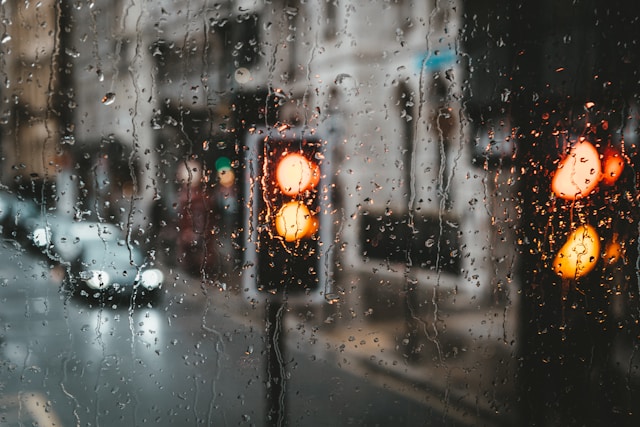Weather has a profound effect on our emotions, shaping not only our moods but our very perception of the world. People often talk about feeling sad on rainy days or happy in the sunshine. Some cultures even have special words to describe these feelings. These words not only capture the nuanced ways in which weather impacts us but also reflect the deep connection between climate and cultural identity. Let’s take a journey around the world and discover some of these fascinating weather-related emotions that you didn’t know had names.
Hygge (Danish/Norwegian)
The Danish and Norwegians have a word that perfectly captures the feeling of coziness during cold weather: hygge. It’s more than just a mood; it’s a way of life. Picture yourself curled by a crackling fire, sipping a hot cup of cocoa, while snow gently falls outside. That sense of warmth, comfort, and contentment is called hygge. It embodies a feeling of well-being, where the harsh weather outside makes the coziness inside feel all the more special.
 Source: Julian Hochgesang on Unsplash
Source: Julian Hochgesang on Unsplash
Pluviophile (English)
While rainy days might bring gloom for some, a pluviophile finds joy and peace in the rain. This word describes someone who feels a unique comfort in the steady rhythm of raindrops and the earthy scent that follows. For pluviophiles, rain isn’t just weather; it’s an invitation to slow down, reflect, and unwind. There’s a sense of solace in the atmosphere rain creates, where the world seems to soften, offering a gentle pause to everyday life.
Komorebi (Japanese)
In Japan, there is a beautiful word for the gentle play of light through the leaves of trees: komorebi. It describes that serene moment when sunlight filters through the canopy, casting dappled patterns on the forest floor. Walking through this interplay of light and shadow evokes a sense of calm and deep connection to nature.
 Source: Image by NoName_13 from Pixabay
Source: Image by NoName_13 from Pixabay
Uitwaaien (Dutch)
The Dutch have a word for a simple yet therapeutic activity—uitwaaien, which means to take a walk in windy weather to clear your mind. There’s something invigorating about stepping into blustery conditions, letting the wind sweep away your worries and refresh your senses. It’s a reminder of nature’s ability to rejuvenate, as the crisp air and the movement around you help to reset the mind, leaving you feeling revitalized.
Mizzle (English)
Mizzle is a term that captures the delicate essence of a fine, misty drizzle. It’s not quite a downpour, but rather a light, ethereal rain that blurs the horizon and cloaks everything in a soft, dreamy atmosphere. The sensation of mizzle brings an introspective mood, perfect for wandering aimlessly, allowing your thoughts to drift as the gentle mist settles around you. Such weather invites contemplation, where the world feels a bit more hushed and reflective.
 Source: Max van den Oetelaar on Unsplash
Source: Max van den Oetelaar on Unsplash
Serein (French)
Serenity and serein share more than just a similar root. In French, serein refers to the light rain that falls in the evening or at night, often when the sky is otherwise clear. It’s a soft, gentle rain that has a calming effect, inviting people to relax. The feeling associated with serein is one of peacefulness, of winding down at the end of the day as the world grows quieter. This rain doesn’t disrupt but rather soothes, offering a moment of stillness that can be emotionally grounding, particularly in an otherwise busy world.
Kaamos (Finnish)
In the northernmost regions of Finland, the winter months bring long stretches of darkness, a period known as kaamos. This word refers not only to the literal absence of sunlight but also to the melancholic feeling accompanying it. The cold, dark days can lead to a profound sense of isolation and sadness. However, kaamos isn’t just about depression; it’s also a time of introspection and stillness, when people turn inward, finding warmth in their homes and hearts.
Conclusion
Weather doesn’t just impact our surroundings; it also profoundly influences our inner world. These unique words from around the globe offer a glimpse into how people across different cultures perceive and express their weather-related feelings. They remind us that the natural world and our emotions are deeply intertwined, shaping our experiences and memories in subtle, beautiful ways.






